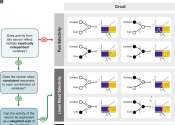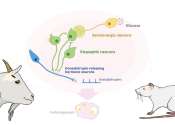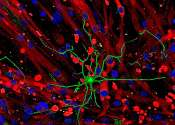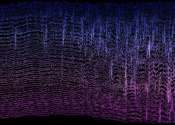How the brain is flexible enough for a complex world, without being thrown into chaos
Every day our brains strive to optimize a tradeoff: With lots of things happening around us even as we also harbor many internal drives and memories, somehow our thoughts must be flexible yet focused enough to guide everything ...
8 hours ago
0
56









